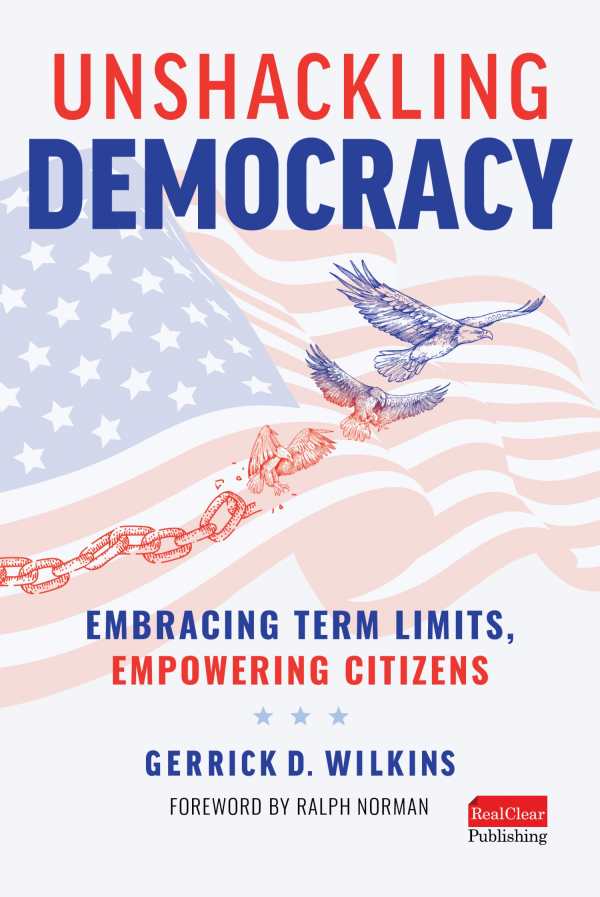Unshackling Democracy
Embracing Term Limits, Empowering Citizens
Unshackling Democracy is a timely work of political commentary that issues a sympathetic call for governmental reform.
Calling for an end to Capitol Hill careerism, Gerrick D. Wilkins’s political science text Unshackling Democracy is a timely contribution to the centuries-old political debate about congressional term limits.
Making a forceful case that members of Congress should be regulated according to the same principles that created the Twenty-Second Amendment, Wilkins, a Republican candidate for Alabama’s Sixth Congressional District in 2024, divides his analysis between making a positive case for congressional term limits and addressing common counterarguments. His book traces the long and frustrating history of the idea of term limits, from its genesis with anti-federalist heroes like George Mason, through to Newt Gingrich’s infamous “Contract with America” and the 1995 Supreme Court ruling that aimed to quash it. Throughout, the book appeals to overwhelming bipartisan support for term limits among American citizens. It also asserts, with urgency, the importance of returning to an older ideal of political service.
Though Wilkins’s 2024 campaign reflects a hard-line conservative platform, his arguments in Unshackling Democracy are loosely geared toward a bipartisan readership. According to this analysis, term limits would lesson corruption, make congressional seats competitive (and more accountable), temper the influence of lobbyists, and resurrect the ideal of “citizen legislators” serving for short periods of time. And Wilkins mostly steers away from direct political attacks, aiming his critiques at long-standing structures rather than at people.
Still, the reforming influence of congressional term limits defended herein remains quite idealistic. It would entail lawmakers restricting their own power—something that human nature revolts against, as the book acknowledges. Still, the book argues for the urgency of such a long-shot proposal with conviction, championing the valuable insights of “ordinary” Americans. Its argument for a system in which “most people [are] willing to answer the call of duty for a brief period of service for their fellow citizens” is rendered so sympathetically that even critics of his proposals will be convinced of its attraction.
However, even with a subject as contentious as congressional term limits, Unshackling Democracy often feels redundant. It brings up favorite objections, and delivers favorite rebuttals, across multiple chapters without adding new depth or clarity. Against the argument that term limits would deprive Congress of valuable experience, it uses a mocking tone to describe the mindset of long-serving members without addressing their real concerns. Most egregiously, it neglects to extend its arguments about human greed, corruption, and lust for power to the Supreme Court. After arguing against lifetime service periods for Congress, it equivocates when addressing the judicial branch: “Knowing that their time in office would be limited might push judiciary members to make more reckless, even radical rulings.” The book’s explanations for why this situation wouldn’t apply to similarly limited legislators fall short.
Unshackling Democracy is a timely work of political commentary that peeks at the inner workings of American government, issuing a call for governmental reform.
Reviewed by
Isaac Randel
Disclosure: This article is not an endorsement, but a review. The publisher of this book provided free copies of the book and paid a small fee to have their book reviewed by a professional reviewer. Foreword Reviews and Clarion Reviews make no guarantee that the publisher will receive a positive review. Foreword Magazine, Inc. is disclosing this in accordance with the Federal Trade Commission’s 16 CFR, Part 255.

